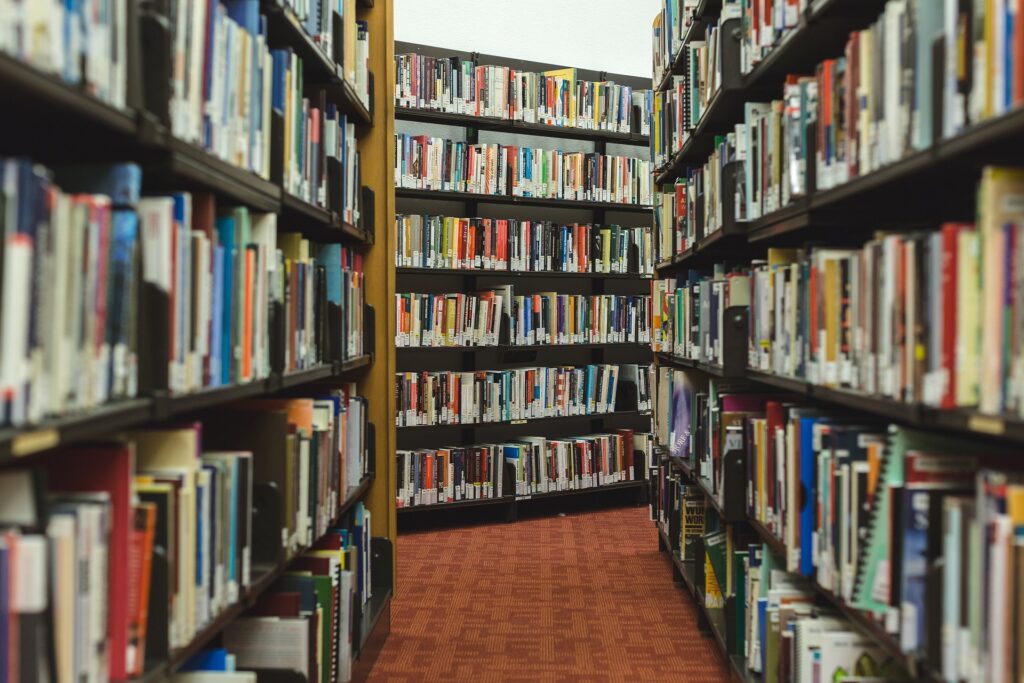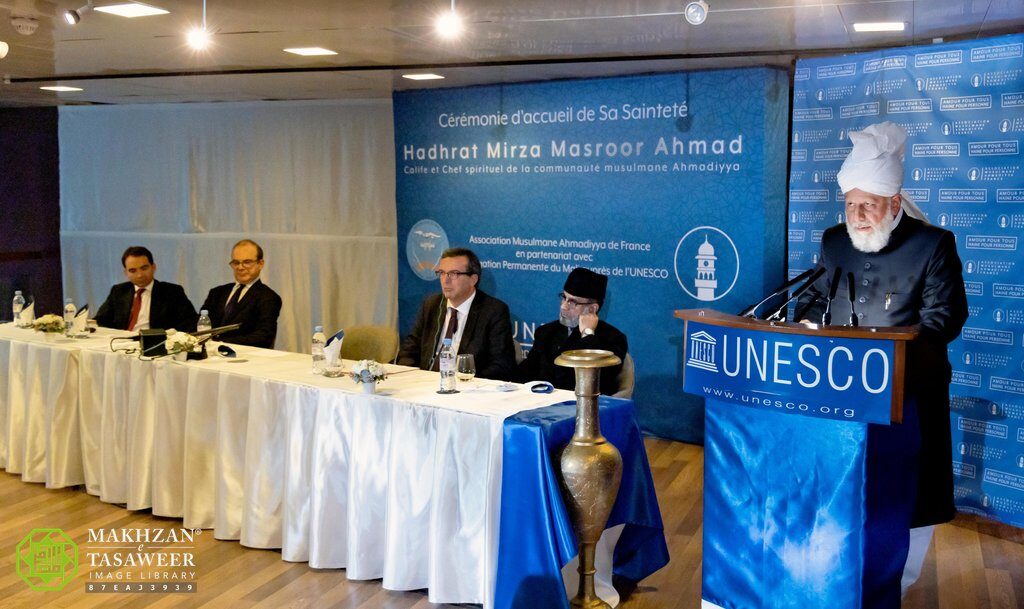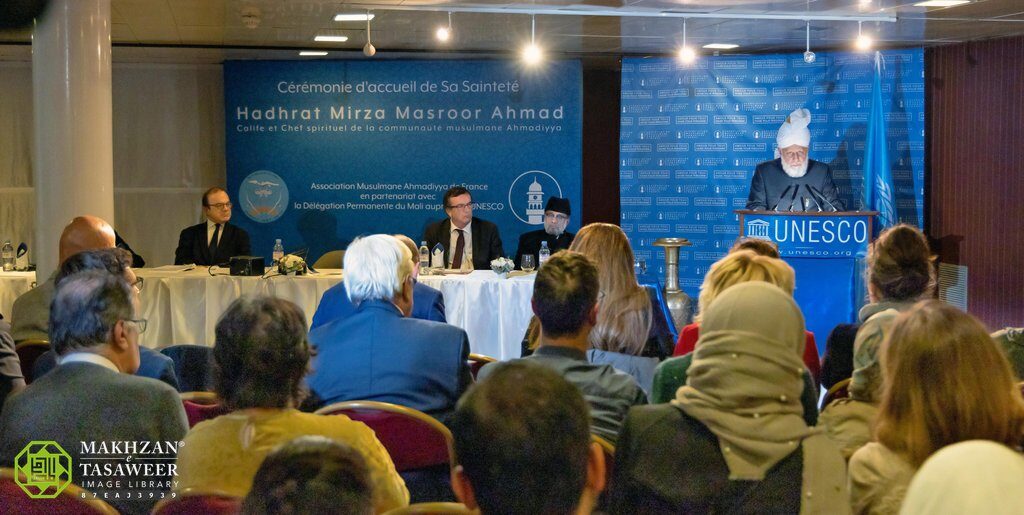Jalees Ahmad, Al Hakam

Indeed, education for all shall lead to a brighter future. “Certainly, we believe that access to education is key to breaking the cycle of poverty that has plagued economically weak countries for generations.” (Islamic Principles on Education and Serving Humanity, Hazrat Khalifatul Masih V’s address at the UNESCO Headquarters in Paris, France, 8 October 2019)
Today, the world celebrates the International Day of Education. It is celebrated annually on 24 January. As the title, International Day of Education, suggests, it is a day to promote the importance and significance of education.
Ms Audrey Azoulay, Director-General of UNESCO:
“UNESCO would like to dedicate the fifth edition of this International Day to all the girls and women in Afghanistan, who have been denied their right to learn, study and teach. The Organization condemns this serious attack on human dignity and on the fundamental right to education.” (https://unesdoc.unesco.org/ark:/48223/pf0000384281_eng)
The Muslim identity and history are rich in examples of both men and women who spent their entire lives in the acquisition of knowledge. In fact, it was a Muslim woman, Fatima al-Fihri, who founded the world’s oldest existing university. It was initially a mosque, and later became an educational centre. (Hanusch, Frederic; Biermann, Frank (2020), “Deep-time organizations: Learning institutional longevity from history”, The Anthropocene Review, 7 (1): 19–41, doi:10.1177/2053019619886670)
The news about women in Afghanistan being denied the right to education comes as a shock, as I’m sure it has to all Muslims around the world. For a country’s population that is almost entirely Muslim, such should not be the case.
The emphasis Islam has placed on the acquisition of knowledge and education is second to none. Muslims are commanded to pray to Allah:
رَّبِّ زِدۡنِیۡ عِلۡمًا
“‘O my Lord, increase me in knowledge.’” (Surah Ta Ha, Ch.20: V.115)
It is recorded that the Holy Prophetsa prayed:
اللَّهُمَّ إِنّي أَسْأَلُكَ عِلْمًا نَافِعًا، وَرِزْقًا طَيّبًا، وَعَمَلاً مُتَقَبَّلاً
“O Allah, I ask You for beneficial knowledge, goodly provision and deeds that are accepted by You.” (Sunan Ibn Majah, Hadith 925)
Further, the Holy Prophetsa said:
مَنْ سَلَكَ طَرِيقًا يَلْتَمِسُ فِيهِ عِلْمًا سَهَّلَ اللهُ لَهُ طَرِيقًا إِلَى الْجَنَّةِ
“Whoever takes a path upon which to obtain knowledge, Allah makes the path to Paradise easy for him.” (Jami` at-Tirmidhi, Hadith 2646)
As it is a Muslim’s desire to please Allah and follow the Holy Prophetsa, this hadith must always be on our minds. As Muslims, our aim and goal is to please Allah and pray to Him to remain on the right path. If we want the path to Paradise made easy for us, we must busy ourselves in the acquisition of knowledge. So, any Muslim who spends his life in the pursuit of knowledge is on the right track.
The Holy Prophetsa further said:
طَلَبُ الْعِلْمِ فَرِيضَةٌ عَلَى كُلّ مُسْلِمٍ
“It is the duty of every Muslim to seek knowledge.” (Sunan Ibn Majah, Hadith 224)
Thus, Islam’s stance is very clear: education and the pursuit of knowledge are obligatory for all Muslims.
On 8 October 2019, Hazrat Mirza Masroor Ahmad, Khalifatul Masih Vaa, delivered a historic keynote address at the United Nations Educational, Scientific, and Cultural Organisation (UNESCO) Headquarters in Paris. Here, I shall cite some passages from Huzoor’saa address.

Concerning women’s rights and education according to the Islamic teachings, Huzooraa said:
“Another issue often raised is that of women’s rights and it is often alleged that Islam denies women’s rights. Nothing could be further from the truth! Rather, Islam established the rights of women and girls for the first time. At a time when women and girls were discriminated against and often looked down upon, the Holy Prophet of Islam (peace and blessings of Allah be upon him) instructed his followers to ensure that girls were educated and respected.” (Islamic Principles on Education and Serving Humanity, Hazrat Khalifatul Masih V’s address at the UNESCO Headquarters in Paris, France, 8 October 2019)
In light of education for orphans, Huzooraa explained:
“Literate and well-educated people were instructed to teach the illiterate. Special measures were put in place to provide education to orphans and other vulnerable members of society. This was all done so that the weak and powerless could stand on their own two feet and advance.” (Ibid)
While mentioning the contribution of Muslims to intellectual enlightenment, Huzooraa said:
“The contribution of Muslims to intellectual enlightenment is still recognised.
“For example, a New York Times article, published by their science reporter, Dennis Overbye, mentions the role of the Muslim polymath Al-Tusi. The author states:
“‘Al-Tusi published many great works on astronomy, ethics, mathematics and philosophy, marking him as one of the great intellectuals of his age […]. Muslims created a society that, in the Middle Ages, was the scientific centre of the world. The Arabic language was synonymous with learning and science for 500 years, a golden age that can count among its credits for the precursors to modern universities. […]’” (Ibid)
Alluding to Ibn Haythem, a Muslim born in Basra, a city in Iraq, Huzooraa said:
“Indeed, if we look back more than a millennium, we see how Muslim scientists and inventors played a fundamental role in advancing knowledge and developing technologies, which transformed the world and remain in use today.
“For example, the first ever camera was developed by Ibn Haytham and his revolutionary work was recognised by UNESCO, when he was declared a ‘pioneer of modern optics.’” (Ibid)
Ibn Haythem was the first to explain the science behind our vision and explained, through his research, that vision occurs when light reflects from an object and then passes to one’s eyes. (Philosophy in the Islamic World, Peter Adamson) He was literally the man behind the camera.
It must also be remembered that the Arabic language – the language that the Holy Quran was revealed in – itself has disclosed many truths to mankind. For example, the Promised Messiahas says:
“The Arabic word for ‘heart’ is qalb, which refers to anything that causes a thing to circulate. Now we know that the circulation of blood depends on the heart. Present-day findings have only recently disclosed after a long period of effort and contemplation the phenomenon of blood circulation. However, in Islam, the word qalb is already used for the heart, and has therefore not only alluded to this truth, but has also safeguarded it as well.” (Malfuzat [English], Vol. I, p. 261)
Speaking of Ibn Nafees, an Arab physician, Huzooraa said:
“In the 17th century, an English physician, William Harvey, famously carried out what was considered ground-breaking research regarding blood circulation and the functioning of the heart. However, it was later discovered that more than 400 years before Harvey’s research, Ibn Nafees, an Arab physician, had already detailed the basics of pulmonary circulation in an Arabic textbook.” (Islamic Principles on Education and Serving Humanity, 8 October 2019)

Alluding to the renowned Muslim physician, Al-Zahrawi, Huzooraa said:
“Furthermore, in the field of medicine, many Muslim physicians and scientists made great discoveries and pioneered many inventions that remain in use today. Many of the surgical instruments were pioneered by the Muslim physician Al-Zahrawi in the 10th century.” (Ibid)
These are just a few passages from Hazrat Khalifatul Masih’saa speech at UNESCO.
A fundamental principle of Islam is ensuring that we look after the rights we owe to Allah and the rights we owe to mankind. As Muslims, it is incumbent upon us to revive the glory of Islam. We must continue to walk on the path of the pursuit of knowledge and education and use it to benefit mankind.
We must remember that it is important that all, especially women, have access to education. Why do I say ‘especially women’? The answer is simple. Undeniably, women are the backbone of our society. If women are educated and learned, then our children shall also be educated. If our children are educated, we shall, indeed, have a bright future ahead of us. It’s a simple cycle.
This is beautifully explained by an American poet known for his Scottish roots, William Ross Wallace. He said:
“The hand that rocks the cradle Is the hand that rules the world” (Loomis’ Musical And Masonic Journal, Vol. 31, Issue 11, 1898, p. 201)

